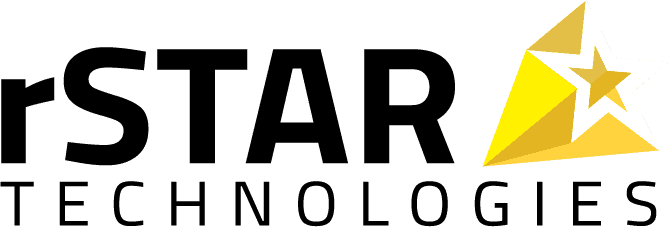Customer Relationship Management (CRM) tools and processes influence manufacturing operations beyond imagination. These tools go beyond delivering quality data-backed insights and managing customer relationships to improving operations, product quality, and supply chain while maintaining industry competitiveness.
Table of Contents
With an efficient CRM system like Salesforce, manufacturers can automate processes to handle tasks faster, reduce human errors, and make more informed business decisions. Innovative manufacturers use these systems to automate their sales pipeline, inventory management, customer support operations, and more.
Salesforce provides manufacturers with many process automation opportunities, which help them revolutionize operations, boost ROI, and facilitate business growth and expansion.
Salesforce CRM in Sales Pipeline Automation
Complex sales pipelines with multiple stages, leads, and sales opportunities are difficult to track manually. With manual processes, sales departments are more likely to lose out on some qualified opportunities due to being unable to attend to all generated leads on time.
With an effective CRM system, sales departments can automate opportunities and lead tracking, ensuring no quality lead is left unattended in the sales funnel. The CRM systems will effectively qualify and categorize all leads generated, enabling the sales team to prioritize the ones with high-conversion potential.
Additionally, manufacturers can leverage workflows and email alerts from the CRM system to constantly communicate with prospects, ensuring every customer inquiry is treated on time.
With recurrent sales processes automated, the sales team will have more time to focus on what matters – selling. They can also provide more personalized services and significantly increase closing rates using customer data and insights available.
Inventory Management Processes Automation
Automation is also critical in optimizing inventory management processes. It helps manufacturers avoid lost sales due to stockouts and misinformation and ensures goods are produced on time to meet demands.
With an effective CRM system like Salesforce, manufacturers can have real-time visibility of inventory levels, ensuring they have the right amount of raw materials and finished products to meet demands.
Furthermore, manufacturers can create reorder alerts and purchase orders depending on set inventory level thresholds if there is effective inventory management automation. This is vital for reducing stockout risks and facilitating efficient procurement processes.
Inventory management automation enables manufacturers to streamline inventory processes and lower carrying costs, resulting in efficient allocation of resources and cost savings.
Customer Support can Benefit from CRM Process Automation
Meeting customer expectations is at the core of every manufacturing operation. Customer-centric manufacturers prioritize customers by providing timely and responsive customer support. This is crucial for building solid customer relationships and increasing customer satisfaction and loyalty.
Research from eBanqo showed that manufacturers can harm their reputation and lose relevance by delaying or completely ignoring customer complaints. Manufacturers can leverage CRM systems to automatically create tickets and reroute customer complaints to the appropriate support quarters for immediate resolution.
With chatbots and virtual assistance systems, initial customer inquiries can be handled efficiently, especially if the inquiries are already addressed in the FAQ. This enables human customer support personnel to handle more complex customer issues and provide timely responses, which improves customer satisfaction and loyalty and increases the chances of referrals.
Automate Warranty and Service Agreement Processes
The warranty and service agreement is another avenue in which Salesforce CRM automation benefits customer-centric manufacturers.
Manual handling of warranty and service agreements is hectic and error-prone. Any delay or mismanagement in the process can give a bad customer experience, resulting in short lifetime value and a negative reputation.
With efficient CRM systems, manufacturers can create, track, and renew warranty and service contracts, ensuring no contract is overlooked. For instance, Salesforce CRMs can trigger service requests and schedule maintenance based on the contract terms and customer requests. The automation ensures customers are promptly attended to, eliminating downtime and increasing satisfaction, customer loyalty, and advocacy.
Manufacturers can also leverage CRM automation to reduce administrative overhead and channel the money saved into other things. Automation also ensures companies maintain compliance with warranty and service agreement terms, preventing disputes that could impact company revenue and reputation.
Quality Control and Production Tracking Automation
Quality control enables manufacturers to consistently churn out quality products, maintain industry standards, and satisfy customers. Manufacturers enhance product reliability by automating quality control processes, increasing customer trust in their products.
Automating the quality control and production tracking processes with CRM systems helps companies reduce defects and waste by performing real-time quality checks on products in the production line. This ensures any deviation from industry or company standards is noticed and corrected immediately before it results in waste or mistakenly gets to the customers.
Forward-thinking manufacturers use the Salesforce CRM system to track production metrics such as yield, throughput, downtime, and scrap rate. The insights they gain from this data enable them to identify areas that need improvement and optimize their production processes.
Enhance Operational Efficiency and Increase ROI with Process Automation
Process automation is essential for future-proofing in highly competitive industries. It makes the difference in strengthening competitiveness, increasing the bottom line, and widening market share. Manufacturers who adopt some of these automation ideas will see a positive jump in operations efficiency and significantly increase sales, customer satisfaction, and referrals.
Embracing Salesforce CRM process automation is the right step in the right direction and is critical to revolutionizing manufacturing operations and meeting business objectives. This is a step manufacturers should take today rather than tomorrow to avoid being left behind.
About rSTAR Technologies
rSTAR is a full-service specialized system integrator built to transform leaders in the asset-intensive industries, such as energy and utilities, manufacturing, high-tech, and automotive into business value all-stars by focusing on digital transformation initiatives. With over 20 years of experience in Oracle, Microsoft, and Salesforce, the company provides consulting, implementation, and services for AI, CX integration and automation solutions. For more information, please contact rSTAR Technologies





